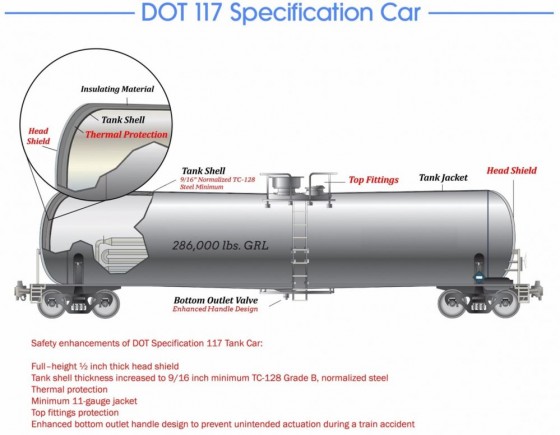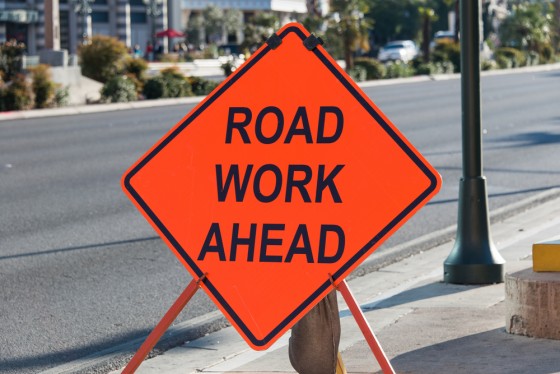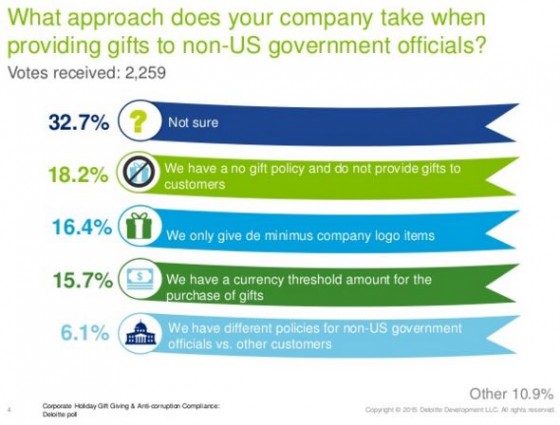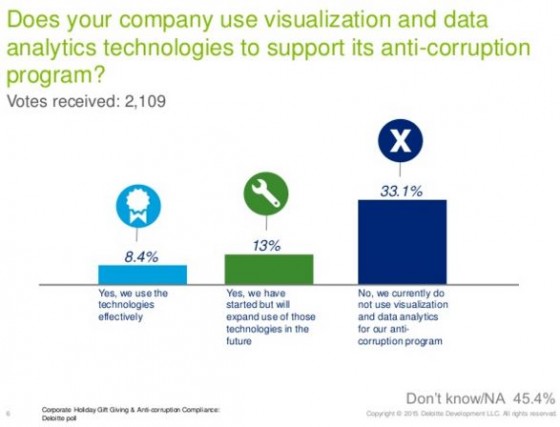A transportation law signed by President Obama earlier this month includes new mandates for freight trains transporting crude oil through the United States. The law requires that tank cars used for transporting crude oil be replaced by March 1, 2018, phasing out older DOT 111 tank cars for shipment of flammable liquids, including most Bakken crude oil, according to the U.S. Department of Transportation.
The new tank cars will have thicker steel shells, insulating materials, full-size metal shields at each end and improved outlet valves underneath the car.
The DOT said that the Notice of Proposed Rulemaking (NPRM) also outlines a classification and testing program for mined gases and liquids and new operational requirements for high-hazard flammable trains (HHFT) that include braking controls and speed restrictions.
A rail disaster in Lac-Mégantic, Canada, on July 26, 2013, that killed 42 people brought a heightened focus on the dangers of transporting highly flammable Bakken crude oil by train.
The Journal News reports that the new law requires freight railroads to provide real-time data on flammable liquids shipments to state emergency response commissions (SERCs) to be shared with local first responders. The law codifies what had been a regulatory emergency order requiring trains containing one million gallons of Bakken crude oil to notify SERCs or other appropriate state-delegated entities about the operation of these trains through their states.
For the first time, the rail safety section of the new transportation law also allows states and localities to obtain inspection reports on privately owned rail bridges filed with the Federal Railroad Administration by freight railroads.
Localities will be eligible for 80% federal funding to finance safety improvements at dangerous railroad crossings.
According to the DOT, the rule:
- Requires an enhanced tank car standard and an aggressive, risk-based retrofitting schedule for older tank cars carrying crude oil and ethanol.
- Requires a new braking standard for certain trains that will offer a higher level of safety by potentially reducing the severity of an accident.
- Designates new operational protocols for trains transporting large volumes of flammable liquids, such as routing requirements, speed restrictions, and information for local government agencies.
- Provides new sampling and testing requirements to improve classification of energy products placed into transport.






